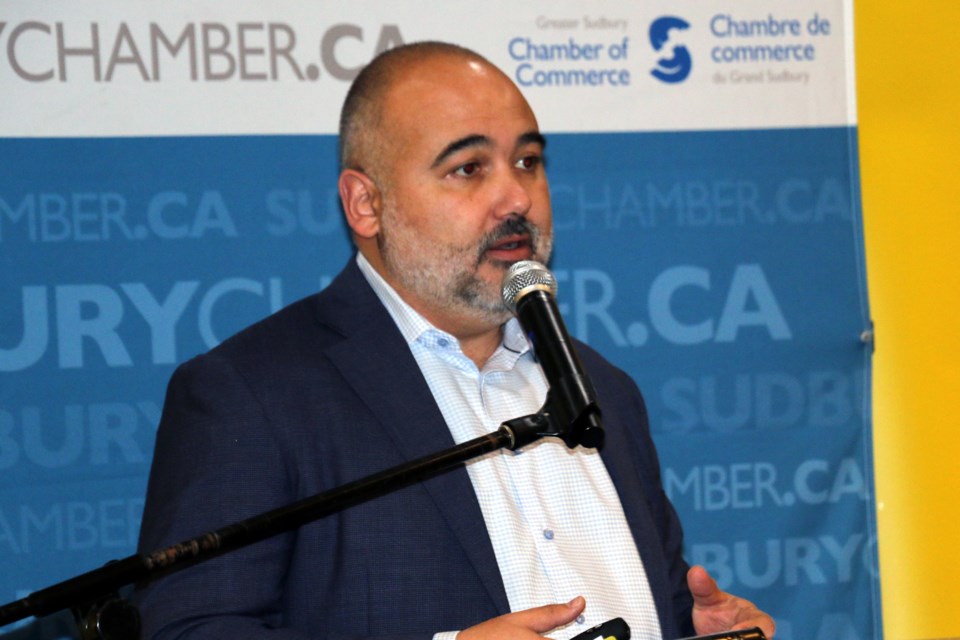The vice-president of Canada's largest gold mining company said there is a lot of excitement these days in the industry, but it's not just related to the rapidly rising price of gold, which has reached record levels in recent weeks.
Andre Leite, vice-president of Agnico Eagle Mines' Ontario operations, said his company is working hard to maintain best possible working relations with First Nations both in providing jobs and sustainability for mining operations on Indigenous lands in Northern Ontario.
He said Agnico is striving to become the preferred partner in the northern communities where the company is located.
This includes the Detour Lake Mine north of Cochrane (Canada's largest gold mine), the Macassa mining complex in Kirkland Lake, a regional office in Timmins, smaller offices in Sudbury and North Bay, and the corporate head office in Toronto.
Agnico Eagle has its roots in northeastern Ontario, having started in the Cobalt Camp in the 1950s when several smaller mines consolidated into one company.
In fact, the name Agnico comes from the mineral abbreviations for the metals Ag (silver) Ni (nickel) and Co (cobalt).

Leite was the keynote speaker at the Greater Sudbury Chamber of Commerce president's series luncheon held Nov. 14. Speaking to a crowd of several hundred mining executives and professionals, Leite said the company is heavily invested in Northern Ontario and plans to step that up in coming years.
He told the audience that Agnico has already demonstrated that commitment, especially with First Nations, by being a business partner with the communities and businesses within those communities.
He said that direct payments linked to 11 First Nations economic agreements — not business partnerships — is $75 million per year.
"What I want to share with you guys is, we're very committed to the First Nations where we operate in their territory. We want to be the preferred partner. We put a lot of effort, OK, to develop those long-term relationships," said Leite.
He said the company has also demonstrated that through its hiring in Ontario.
"The other aspect that is important to highlight here is our commitment with the employment opportunities,” he said.
“Close to 18 per cent of the Detour workforce is First Nations. So those are high-paying jobs. We're economically developed, and there's also significant business opportunities right now, and the business opportunities that we have, the business partnerships we have with the First Nations, they are very constructive.”
He added that the company is committed to expanding its operations in Canada — in Ontario, Quebec and Nunavut.
Leite said Agnico is currently well-positioned to expand operations in Northern Ontario and Northern Quebec. He said this would include expanding the Detour mine to include underground operations.
Leite added that a continuing concern is the need to attract more workers to Northern Ontario, whether people are coming from southern Ontario, other provinces or even out of the country.
He said it could likely be a compound solution involving all three options.
The executive spoke of one example of enticing specialized heavy equipment mechanics from Mexico from an operation that was ramping down.
Leite said qualified mechanics were needed to train new apprentices in Kirkland Lake. He said the company decided to bring the mechanics, and their wives, to Kirkland Lake in December for a visit.
The Sudbury audience laughed.
Leite said the idea was to give the couples a full Canadian experience.
The couples were sent back home and then asked if they wanted to move North. Out of 13 couples, he said 12 chose to move their families to Kirkland Lake.
Len Gillis covers the mining industry and also health care for Sudbury.com




